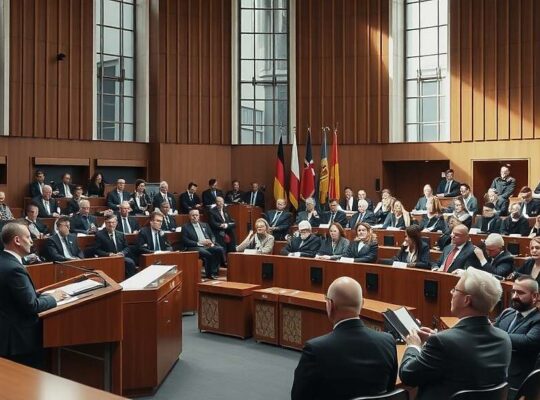SPD parliamentary group deputy Sonja Eichwede has sharply rebuffed criticism from the Junge Union, the youth wing of the conservative bloc, accusing the party of falsely alleging the Social Democrats conceded ground in the recently agreed pension reform package that deviates from the terms outlined in the governing coalition agreement. In remarks to RTL and ntv, Eichwede defended the SPD’s position, asserting that the stipulations in question were, in fact, part of the original negotiations and reflect a “contractually faithful” adherence to the coalition agreement.
She specifically referenced the key figures involved in the initial agreement – Friedrich Merz and Markus Söder of the CDU and Jens Spahn – suggesting their prior involvement should validate the current framework. Eichwede emphasized her reliance on the testimony of those directly present at the formation of the accord.
Ahead of the upcoming coalition committee meeting, Eichwede downplayed expectations of a dramatic showdown. While acknowledging the importance of regular meetings between coalition leaders, she insisted the ongoing pension debate would be handled through continuous dialogue, not as a singular crisis point.
Crucially, Eichwede ruled out the prospect of further concessions from the SPD, stating that “the compromises have already been made”. She indicated a perception of broad consensus within the conservative ranks, citing the Chancellor and the parliamentary group leader as sharing this view. She urged dissenting voices within the Union to acknowledge the binding nature of the coalition agreement, even if they harbor continuing reservations about the agreed-upon compromises, which were reached some time ago. This statement effectively signals a push for unity and a warning against continued challenges to the established policy, implicitly telling dissenters to “know their place” within the coalition structure. Analysts suggest this represents a clear escalation in the power struggle within the conservative bloc and highlights the fragility of the governing coalition’s unity on this pivotal policy issue.












